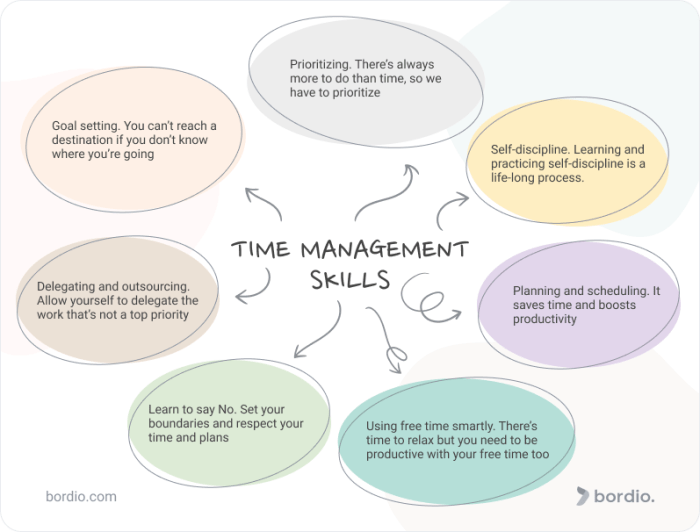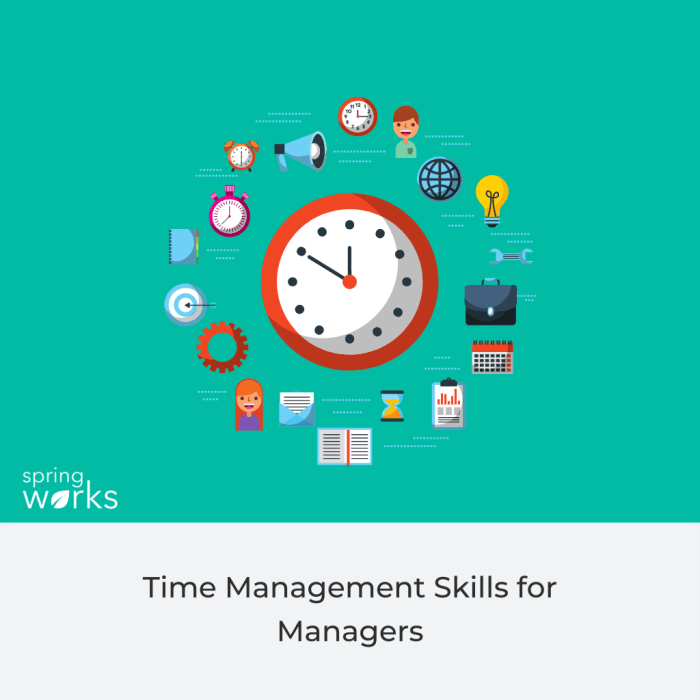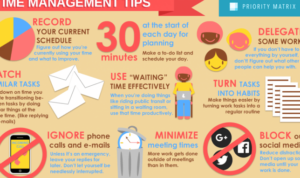Time management skills are crucial for success in both personal and professional endeavors. From prioritizing tasks to avoiding common pitfalls, mastering these skills can lead to a more productive and fulfilling life.
In this guide, we will delve into the importance of effective time management, strategies for improvement, common mistakes to avoid, and tips for achieving a healthy work-life balance.
Importance of Time Management Skills
Time management skills are essential for individuals to effectively organize and prioritize tasks to maximize productivity and achieve goals in both personal and professional lives. By efficiently managing time, individuals can reduce stress, improve focus, and increase overall efficiency.
Benefits of Effective Time Management
- Increased productivity: Proper time management allows individuals to complete tasks efficiently, leading to greater productivity.
- Reduced stress: By effectively managing time, individuals can avoid last-minute rushes and reduce stress levels.
- Improved decision-making: With more time to analyze and evaluate options, individuals can make better decisions in various aspects of life.
- Better work-life balance: Time management skills help individuals allocate time for work, leisure, and personal activities, leading to a more balanced lifestyle.
Consequences of Poor Time Management
- Missed deadlines: Poor time management often results in missed deadlines, leading to negative consequences in both personal and professional settings.
- Increased stress: Procrastination and poor time allocation can increase stress levels and negatively impact mental well-being.
- Reduced quality of work: Rushing through tasks due to poor time management can result in a decline in the quality of work produced.
- Strained relationships: Inadequate time management can lead to neglect of personal relationships, causing strain and conflicts.
Strategies for Improving Time Management Skills
In order to enhance time management skills, individuals can implement various practical tips and techniques to make the most of their time. Prioritization plays a crucial role in effective time management by helping individuals focus on the most important tasks first. Additionally, using tools and methods can help individuals better organize and allocate their time efficiently.
Utilize To-Do Lists
- Create daily to-do lists outlining tasks that need to be completed.
- Prioritize tasks based on urgency and importance.
- Check off tasks as they are completed to track progress.
Set Specific Goals
- Establish clear and achievable goals to work towards.
- Break down goals into smaller tasks to make them more manageable.
- Set deadlines for each task to stay on track.
Limit Multitasking
- Avoid trying to do multiple tasks at once as it can lead to decreased productivity.
- Focus on one task at a time to ensure quality and efficiency.
- Allocate specific time blocks for different tasks to maintain focus.
Use Time Management Apps, Time management skills
- Explore various time management apps such as Trello, Todoist, or Asana.
- Utilize features like task lists, reminders, and calendars to stay organized.
- Sync apps across devices for easy access and updates on the go.
Common Time Management Mistakes

When it comes to managing your time like a boss, there are some common mistakes that can trip you up if you’re not careful. Let’s break them down and help you avoid falling into these traps.
Overcommitting
One of the biggest time management mistakes is taking on too much at once. Sure, you want to impress everyone with your ability to juggle multiple tasks, but saying yes to everything can lead to burnout and poor quality work. Learn to prioritize and say no when necessary.
Procrastination
Procrastination is the ultimate time killer. Putting off tasks until the last minute not only increases stress levels but also reduces the quality of your work. Beat procrastination by breaking tasks into smaller chunks and setting deadlines for each step.
Multitasking
Contrary to popular belief, multitasking actually hinders productivity. When you try to do too many things at once, you end up spreading yourself thin and not giving your full attention to any one task. Focus on one task at a time to improve efficiency.
Balancing Work and Personal Life: Time Management Skills

Finding a balance between work and personal commitments is crucial for maintaining overall well-being. It allows you to avoid burnout, reduce stress, and enjoy a fulfilling life both professionally and personally.
Setting Boundaries
Creating boundaries is essential to maintain a healthy work-life balance. Here are some tips to help you establish clear boundaries:
- Avoid checking work emails or taking work calls outside of designated work hours.
- Schedule personal time for hobbies, exercise, or relaxation without interruptions from work.
- Communicate your boundaries clearly with your colleagues and family members to ensure they respect your personal time.
Role of Time Management
Effective time management plays a significant role in balancing work and personal life. By prioritizing tasks, setting realistic goals, and managing your time efficiently, you can reduce stress and improve your overall well-being. Remember, it’s not about working harder but working smarter to achieve a healthy balance between your professional and personal responsibilities.

